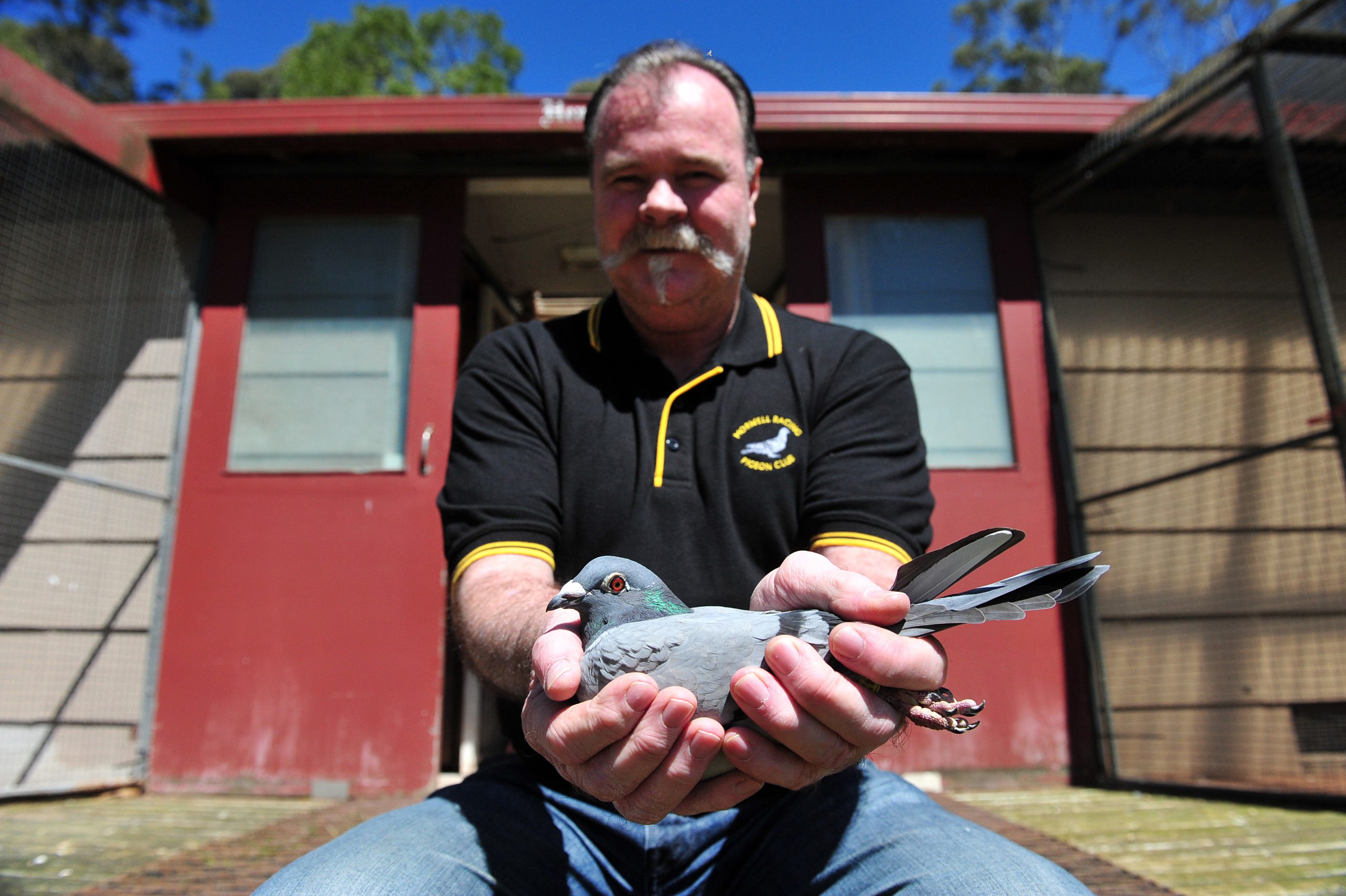When asked to list sports which provided a social outlet for the migrants who flocked to the Latrobe Valley to take up jobs in the burgeoning power industry, the two that first spring to mind
Lawn bowls,
However one almost certain to be overlooked would be pigeon racing.
Morwell Pigeon Club’s Jeff
“It was just like all the SEC workers and in those days we had people coming from Italy, Germany, Poland and all the different communities that came in to build the power stations and they got together to build the club,”
“Our club has been running since 1954, which is way back. I started when I was eight with the Morwell Pigeon Club and I’ve been going ever since.”
He said the club had provided an opportunity to speak to
Pigeon racing has changed in the intervening years – the birds now wear rings containing microchips and are recorded digitally – but
“It’s just a great thing that you can breed a little bird that turns into a racing pigeon and you can send it away and it comes back,” he said.
“(It’s) just the thrill of coming back and diving out of the sky and coming back to your loft.
“You’re outside and you’re getting a bit of sun and you’re not inside just watching telly.”
From breeding to training to racing, a lot of work goes into maintaining a kit of pigeons.
A baby pigeon, or squeaker’s, competitive career starts when it’s between 25 and 30 days old when it goes into a racing loft – a type of aviary which serves as the bird’s home and where it returns to on race days.
Soon the birds are let out to fly and form groups, flying for longer and longer periods until they reach the point where they spend about one-hour-and-a-half in the air.
At this
“You put them in a training basket and then we put them in the car (and take them) five
“Then they come back home and then you take them 10km down the road, just… build up their confidence.”
This process of progressively extending the pigeon’s flight distance continues until it can cover a distance of 50
At this
The pigeon’s first race usually covers a distance of about 80kms, but the distance can stretch from one side of Bass Strait to the other.
“So the furthest we fly is up to 1000kms and fly across Tassie across the water, which is the longest pigeon race in the world as far as
“You need a bird that’s going to be mentally
“So, they can be low flying over the water and then maybe a big wave comes and they’ve got to get up and get going.”
Just as different racehorses are suited for different courses, the choice of pigeon for a particular race depends on the distance it will cover in the race.
Birds which cover short distances have shorter wings, whereas those who fly the big distance races have a smaller body but longer wings.
And like racehorses, top birds are bred to produce champions and different trainers have their different techniques for getting the most out of their birds.
For anyone thinking about getting involved in pigeon racing,
“We’ve had a new flyer start just this year, a young guy who lives down next to the Morwell club and he won the first three races and so everyone gave him baskets and birds and nest boxes to help him start off,” he said.
“Everyone’s that way inclined because it’s not a sport where
Anyone interested in taking part in pigeon racing can phone Jeff











